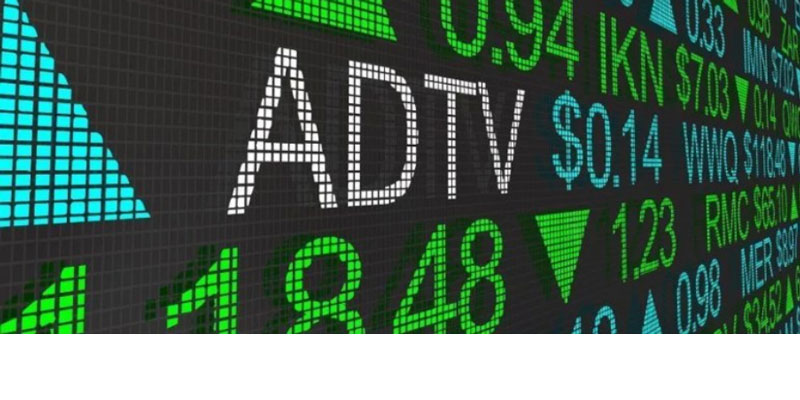What Is Considered To Be The Typical Daily Volume Of Trading?
Feb 28, 2024 By Triston Martin
The average daily trading volume (ADTV) of a stock reflects the total number of shares bought and sold each day. A stock's daily volume is the number of shares traded that day; the average daily volume is the total number of traded daily multiplied by the number of trading days in a certain period. Because different types of traders and investors are drawn to markets with high or low average daily trading volume, the importance of this metric cannot be overstated. Many traders and investors prefer average daily trading volume to low volume because it allows for more convenient entry and exit. Since fewer buyers and sellers are in the market for low-volume assets, it might be more challenging to enter or exit at a favorable price. ADTV measures the typical number of shares that change hands in a stock's trading session. The daily average is determined via arithmetic mean-variance analysis of the entire volume of trades over a given period.
What Can You Learn From The Average Daily Trading Volume (ADTV)?

Changes in ADTV that are very large or little indicate that investors have changed their minds about the asset's worth. A security with a larger average daily trading volume is usually less volatile, has tighter spreads, and is more competitive. When a stock's average daily trading volume is high, price volatility is often lower because larger trades would be required to move the stock. There is no guarantee that a stock with a high volume will not see significant daily price fluctuations. For instance, as the price of a security rises steeply in an uptrend, the corresponding volume typically increases as well. Low volume during a stock's decline indicates weak demand for security. Price and volume confirm the uptrend, so if the price increases again on stronger volume, it could be a good time to get in. High volume may signal the peak of a price trend. After a specific number of shares have traded hands in a given price range, no new buyers may be willing to drive the price higher. Exaggerated price changes accompanied by a surge in the trading volume are generally an early warning of a price reversal.
What Is The Relationship Between Average Daily Trading Volume (ADTV) And Open Interest?
Open interest is sometimes confused with volume. The term "average daily trading volume" refers to the number of shares contracts or (stock market) options market and future that are traded on a daily basis. In futures and options trading, the word "open interest" refers to the number of contracts that have not yet been closed. There is a big discrepancy between the two measures. In the context of trading, "volume" refers to the raw number of contracts traded. The number of open contracts can be monitored by measuring the open interest and the number of transactions used to open or close positions.
Use Of Average Daily Trading Volume Has Limitations (ADTV)

A stock's average daily trading volume is a typical indicator used by investors and traders to ascertain whether or not the stock is suitable for their trading strategies. On the other hand, ADTV is very standard. An asset's daily volume may be much greater or lower than usual. Changes in the average can cause it to rise, fall, or oscillate over time. So, ensure the asset is still within the volume parameters you desire for trading by keeping an eye on volume and average volume frequently. If the volume of security suddenly spikes or drops dramatically, it could indicate some change inside the asset, which could be either positive or negative. Volume won't provide the answer, but it can indicate whether or not more investigation or action is needed.
Conclusion
The average number of times a stock's shares change hands in a single trading day is known as the stock's Average Daily Trading Volume (ADTV), which is a popular technical indicator among investors. Although ADTV can be calculated for any period (five days, ten days, etc.), the most common periods for which it is employed are twenty and thirty days. The average daily trading volume of a stock, its options, or a market index like the S&P 500 can all be monitored. One supplementary indicator to daily trade volume is daily value. The ADV measures the typical daily dollar volume of stock trading.

How to Save Money on Taxes with a Cash-Out Refinance
Want to know how you can save money on taxes with a cash-out refinance? Read this article to find everything related to it.
Jan 10, 2024 Triston Martin

What You Need to Know to Prevent Emotional Investments
When the value of your investments fluctuates, as it nearly always will, it's difficult not to allow your emotional side to take control of your long-term investing strategy. A stock market's value drop might make investors uneasy or concerned about their overall financial well-being. Similarly, as the markets begin to rise, you may get a little overconfident, allowing yourself to take on more risk to maximize your gains.
Oct 17, 2023 Triston Martin

Credit Cards For Unemployed?
Due to growing inflation and interest rates, consumers may lose their jobs if economic uncertainty continues. A credit card might provide some financial security while you seek work. However, it's not smart to pile up a lot of high-interest debt in times of economic uncertainty
Jan 08, 2024 Triston Martin

Everything You Need To Know About Credit Bureaus
Learn what credit bureaus do, how they work, how you can use them to your advantage, and what factors affect your credit score
Nov 12, 2023 Triston Martin

What Does It Mean If You Have An 800 Credit Score?
Congratulations, your credit score is excellent at 800 or higher. Your Score is significantly higher than the national average, showing lenders that you are a responsible borrower. A credit score of 800 or higher gives you something to brag about and makes you eligible for preferential treatment when applying for new credit..
Feb 07, 2024 Triston Martin

Investing In Municipal Bond in 2024
If you are willing to invest in municipal bonds and finding the best strategies to invest, then find more about investing in municipal bonds in 2024
Feb 10, 2024 Susan Kelly